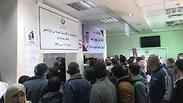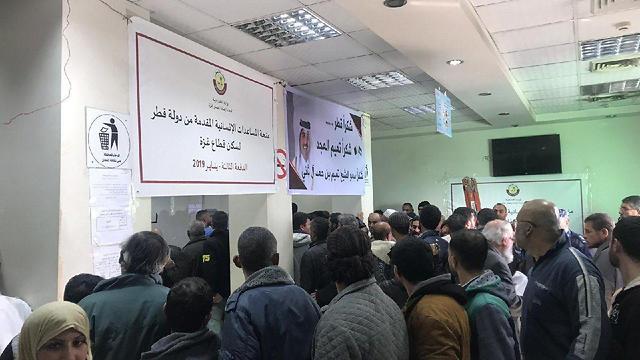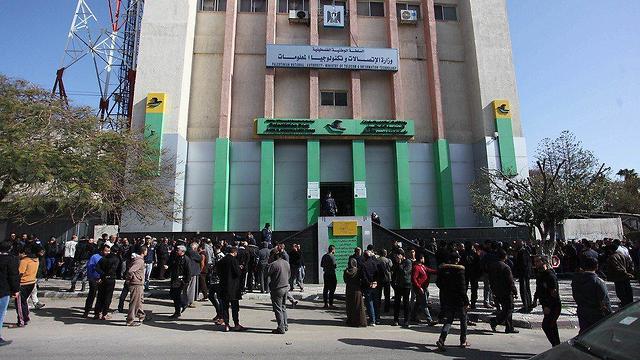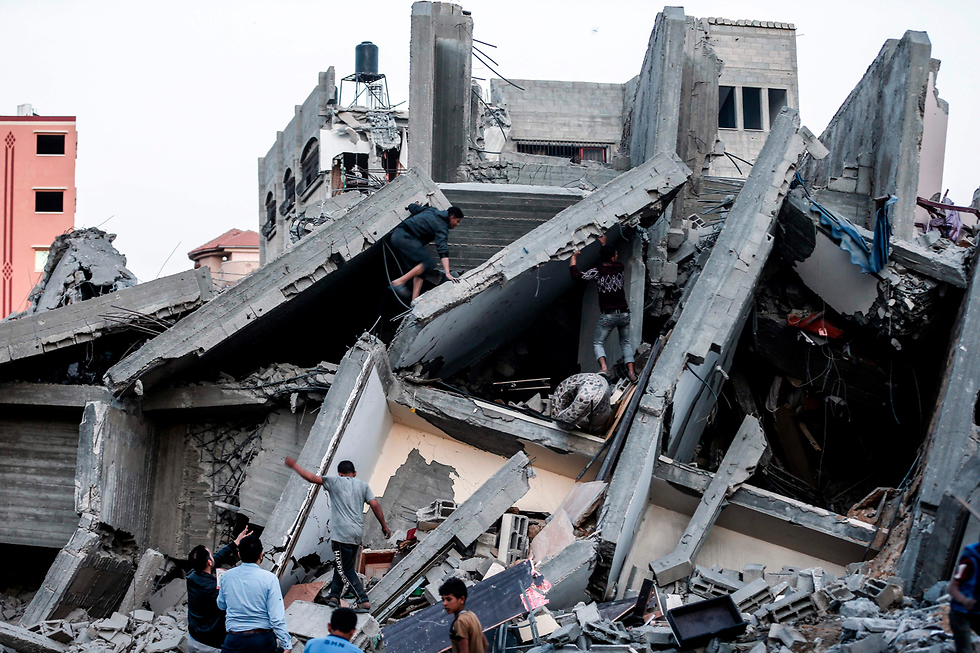
Qatari envoy enters Gaza to deliver cash boost
Mohammed al-Emadi will transfer some $30 million, meant for the impoverished population in the enclave, to Gaza officials; reports in Arabic-speaking media suggest the move is the first step in the implementation of the ceasefire deal reached after last week's deadly flare-up
The Qatari envoy, Mohammed al-Emadi, during his visit will hand-over some $30 million to Gaza officials, meant for the families living in poverty and those affected by the humanitarian crisis in the impoverished enclave.
Qatar's Gaza Reconstruction Committee confirmed the payouts will begin on Monday, with each family in need receiving $100 in assistance. Payments will be distributed via the post offices in the Strip. Emadi is expected to meet with leaders of the Palestinian factions during his trip.
According to a report in the London-based Asharq al-Awsat newspaper on Sunday, Israel’s willingness to allow the money to enter the Hamas-ruled enclave, apparently represents the first stage of the implementation of the agreement reached between Israel and Hamas after the latest ceasefire.
Parts of the deal which are yet to be implemented also include the lifting of some restrictions on imports and exports entering and exiting Gaza - as well as the expansion of the fishing zone - in exchange for a cessation of all Hamas-led border violence.
Earlier on Monday, UN Special Coordinator in the Mideast, Nickolay Mladenov, also arrived in Gaza in order to hold a series of meetings with local officials.
Qatar’s Foreign Ministry earlier confirmed it will transfer some $480 million to Palestinians in the West Bank and the Gaza Strip. Qatar said that $300 million are aimed for health and education endeavors in the West Bank, while another $180 million will fund humanitarian aid, renovation works to improve electrical systems and support UN initiatives in the Gaza Strip.
In the latest deadly flare-up between the two sides which occurred last weekend, Palestinian militants fired more than 700 rockets into Israel, killing four Israeli civilians, the first Israeli fatalities from rocket fire since the 50-day war in 2014, known in Israel as Operation Protective Edge. Israel Defense Forces retaliated with massive airstrikes on Gaza, killing 25 Palestinians, most of whom are believed to be militants.
Islamic Jihad leader later claimed that Israel’s promise to implement the understandings reached in an earlier ceasefire deal from March (which include lifting of the Gaza blockade) is what convinced the terror groups to eventually hold fire and agree to a ceasefire.



















